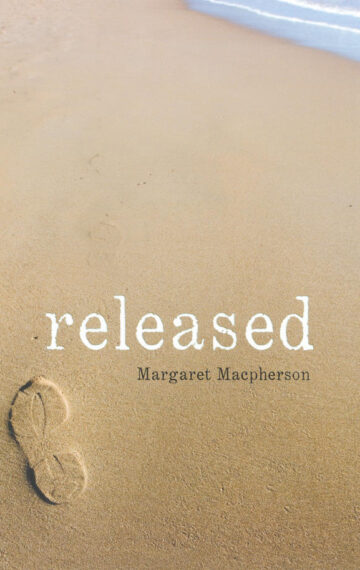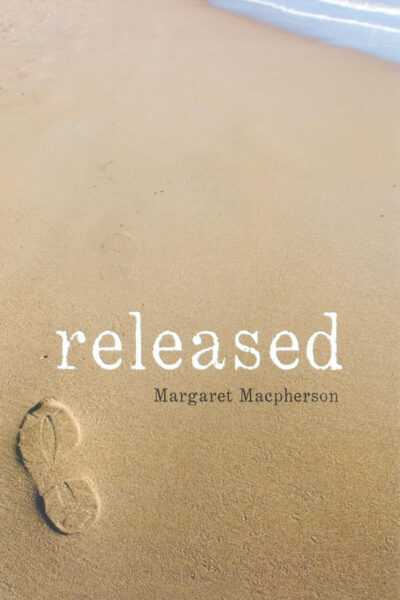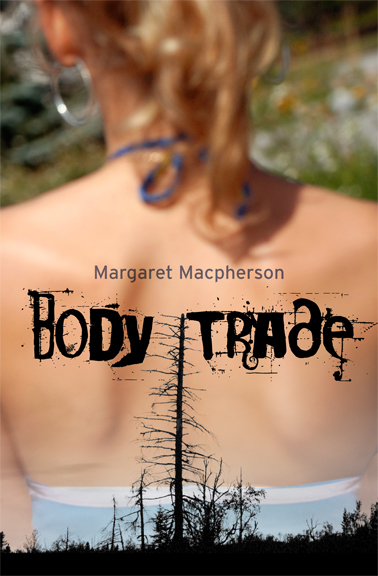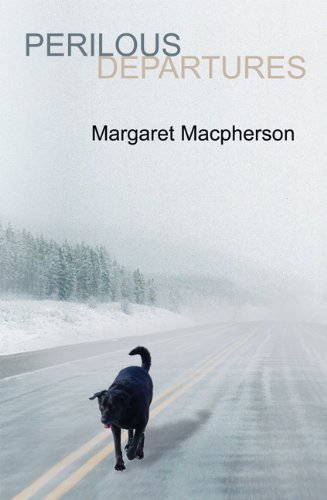
- Publisher: Signature Editions
- Available in: Paperback, Kindle
- ISBN: 1897109148
- Published: April 22, 2021
*Shortlisted for the Mary Scorer Award for Best Book by a Manitoba Publisher
A yellowed newspaper clipping about a recently released prisoner who saves a drowning boy triggers a wrenching journey into memory for middle-aged Ruth Callis, forcing her to confront the events of her past and, ultimately, her own act of forgiveness. Growing up in the far North, Ruth is attracted to the young missionaries working in her town and becomes increasingly involved in the activities of their evangelical fundamentalist church group. Much to the dismay of her long-suffering parents, she turns into an adolescent zealot. When Ruth moves south to go to university, life becomes less simple, answers less obvious. She becomes involved with Ian, an older man who is unemployed, alcoholic, obsessive, and increasingly volatile. What at first seems exotic becomes more and more frightening. The devastating relationship forces Ruth to re-examine her own twisted ideologies. A book of rare emotional honesty, Released reveals the selfishness of the so-called righteous, the intense cruelty of human beings, and their divine capability for real love.
VIEW THE BOOK CLUB GUIDE
Reviews
It’s the story of Ruth Callis, the youngest of five children who, remarkably enough, grow up in a happy home. Macpherson splits her narrative into two alternating accounts, one giving the trials and tribulations of Ruth’s growing-up years, and the other dealing with her love affair, at age 20, with Ian Bowen, a somewhat mysterious fellow 16 years her senior.
At the most critical point of the novel, the two accounts converge.
The Callis family lives in a Northwest Territories town, where the father works for a gold-mining company. Though the mother doesn’t exactly like it up North, she hasn’t let it embitter her, and the kids seem to get along well with both parents.
Much is made of Ruthie’s childhood dental problems and the family affectionately calls her Toothie. She seems well adjusted, and she has at least two good friends, one of whom is an aboriginal girl called Jax.
Ruthie’s innocence and gullibility become clear in this latter relationship, but Jax doesn’t take advantage of her. Later, though, when Jax is no longer around, Ruthie—at age 14—falls under the influence of the local evangelical church, and the young men who call themselves Elders.
“If I ever wanted to be like them,” she muses, “I was going to have to start getting serious about the stuff around me.” Meaning she should divest herself of her possessions.
And so she puts together a bagful of her clothes and gives it to the thrift store in town. She also starts to fast, believing she’ll only be acceptable to God when she loses weight. Brainwashed as she is, Ruthie is unruffled by her schoolmates who call her “Jesus freak,” and she fails to see the harm the Elders may do to her—but, eventually, she does.
Meanwhile, in the parallel narrative, the older Ruth, now at university in the Maritimes, goes to a bar one night and meets Ian.
“I’m not the type to fantasize about kissing a stranger but it happens like a brief shock, a pop-up cartoon picture of us kissing, my tongue touching that plump lower lip.”
Ian has a past he doesn’t speak about but, impressionable as she is, she feels as wholeheartedly attracted to him as she once was to God. It’s only a matter of time until Ian will disappoint her, but Ruthie seems unable or unwilling to read the warning signs—she has to experience whatever Ian has in store for her.
One of the best sequences tells of their hitchhiking trip to Sudbury, where her parents are now living—and to Toronto.
Macpherson packs a wallop with her scenes of violence, but even after those, poor Ruthie seems to want to see some good in the person if not the deed.
The author opens and closes the novel with Ruthie’s situation some years after the events of the story, a frame that seems rather unnecessary to the book’s effectiveness, just as Ruthie’s sojourn to Australia seems tacked on.
But, as a whole, Released is absorbing—you’re pulling for Ruthie no matter what she does. This is an accomplished and ultimately satisfying first novel. ”
Macpherson portrays a believably regression of Ruth and Ian’s relationship, a downward spiral from carefree adventures to Ruth enduring torturous acts. Especially wrenching is that through all of Ian’s abuse, she is absolutely unguided, unprotected, and unadvised. She receives no protection from ehr parents, friends, roommates, professors, or church. What makes this particular narrative different from other tales of young girls falling for the wrong boy, only to come to misery, atonement, and healing? In a speech to Ian, Ruth’s resilience stems from her ability to forgive. She is real, honest, wrong, innocent, closed, trusting, blind, courageous, ignorant, open, young, and caring.
In all, Released is about searching for the sacred, whether through God, a romantic relationship, or a friendship. ”
Author says book is about forgiveness
When talking about her first novel, Released, and its protagonist, Ruth Callis, author Margaret Macpherson makes one thing clear: when she creates fiction; the characters come from her imagination.
“The joy of fiction is using the writer’s imagination. This is my character’s life. Not my life. I created Ruth, and she tells her story,” she says. “I never felt like I was carrying around the weight of the world, telling Ruth’s story.”
“I get up ad make sandwiches for lunch; then I enter her world. I engage and disengage. I have to.”
Even though Macpherson goes beyond writing what she knows, she enjoys writing what she knows, she enjoys writing about where she’s been. Treks through Bermuda, Central America, Mexico, Europe, and Australia all left a mark on Released.
“The book is all over the map: the East Coast, the Noth, Sudbury, Australia. And I really enjoyed writing about Yellowknife. Finding settings was the easy part.”
The award-winning author says that love, betrayal, and redemption are fundamental to all human characters. But Released emphasizes the element of forgiveness.
“To come to full humanity is to forgive. Anger doesn’t get you anywhere. My book is more a lesson than a warning. It’s about the notion that one must forgive in order to find freedom,” explains Macpherson.
Provocatively original, Released offers a series of life lessons, learned the hard way by the narrator, Ruth, who revisits her past after reading a newspaper clipping about a man who saved a drowning boy. Is this Ian, her abusive ex-boyfriend? Reflections, questions, and memories are triggered, pressuring Ruth to make peace with her past.
Macpherson says Released questions the moral impact of religion and personal domination. “Why do people get themselves into situations of violence? I found that the answer, at least for this character, lay in the indoctrination of selflessness. She is set up by the church. She sheds her sense of self. In the pretense of being selfless, she tries to take the place of God and become Ian’s savior.”
Macpherson wants people to believe in Ruth’s struggle. “I want them to see themselves. And if I can make them think–what more could I ask?”
Chronicling the human condition is not entirely new for this Edmonton author who has previously published one book of short fiction as well as several books of non-fiction. With a degree in creative writing from the University of British Columbia, Macpherson says her fundamental goal of writing a novel never wavered, although it took over a decade.
“I spent 11 years working on and off, writing this book. In the interim, I wrote five other books, so I wasn’t working on it exclusively. But I had to find a way to tell the story of violence against women. I kept going back to the story,” she says.
“It wouldn’t leave me alone.”
“Margaret writes ” We are all part of the great mystery”. For me, this novel draws us deep into the mysteries of the sacred places of the heart where we alone know who we are, where we’ve been, the place where extreme joy and massive hurt coexist to fuel our existence. Face to face with her inner place the main character finds both strength and weakness in who she is. She experiences what truth can do, the mysterious inner resource that resides in each of us for finding freedom through forgiveness. A marvelous read for a first novel. It engages you from page 1 and you can’t put it down. Anyone of any age can relate to this story. We have all taken the wrong paths from time to time, we have all suffered inner turmoil from unforgiveness but have we all found the inner path to unleashing forgiveness from our spirit?”


